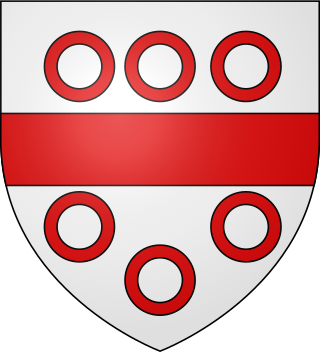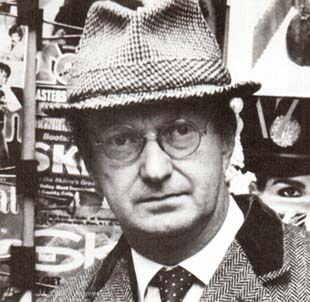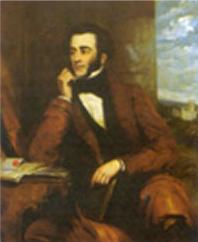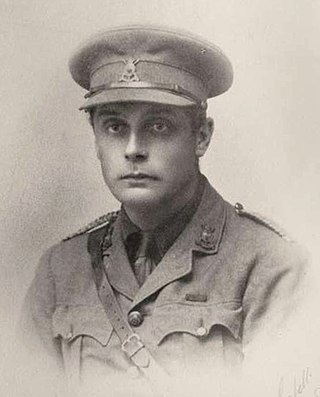Fictional characters
- Auberon (comics), the King of Faerie in the DC comic series The Sandman and The Books of Magic
- "Auberon", a short story in The Expanse series
Auberon (French: Oberon ) may refer to:

Henry Howard Molyneux Herbert, 4th Earl of Carnarvon,, known as Lord Porchester from 1833 to 1849, was a British politician and a leading member of the Conservative Party. He was twice Secretary of State for the Colonies and also served as Lord Lieutenant of Ireland.

Auberon Edward William Molyneux Herbert was an English writer, theorist, philosopher, and 19th century individualist. He was a son of the 3rd Earl of Carnarvon. He was Liberal Member of Parliament for the two-member constituency of Nottingham from 1870 to 1874.

Earl of Carnarvon is a title that has been created three times in British history. The current holder is George Herbert, 8th Earl of Carnarvon. The town and county in Wales to which the title refers are historically spelled Caernarfon, having been Anglicised to Carnarvon or Caernarvon. The traditional Welsh spelling is itself a modified form of the original name of antiquity, Caer-yn-Arfon, meaning fortification opposite the island of Mona.

Baron Lucas is a title that has been created twice in the Peerage of England. The second creation is extant and is currently held with the title Lord Dingwall in the Peerage of Scotland.
Carnarvon and Caernarvon are forms of the name Caernarfon which are no longer used for the town in north Wales, but remain in use in other contexts. The first two forms are in English orthography and the third is the Welsh spelling, adopted in English since the 1970s. Most places and things named after Caernarfon use one of the former spellings.

Auberon Alexander Waugh was a British journalist and novelist, and eldest son of the novelist Evelyn Waugh. He was widely known by his nickname "Bron".

Colonel The Honourable Aubrey Nigel Henry Molyneux Herbert, of Pixton Park in Somerset and of Teversal, in Nottinghamshire, was a British soldier, diplomat, traveller, and intelligence officer associated with Albanian independence. He was twice offered the throne of Albania. From 1911 until his death he was a Conservative Member of Parliament. His eldest half-brother was George Herbert, 5th Earl of Carnarvon (1866–1923), who discovered the tomb of Tutankhamun.
George Ivar Louis Mountbatten, 4th Marquess of Milford Haven, styled Earl of Medina before 1970, is a British hereditary peer and businessman.

Francis Richard Charteris, 10th Earl of Wemyss GCVO DL, styled as Lord Elcho between 1853 and 1883, was a British Whig politician. He founded the Liberty and Property Defence League.
Auberon Mark Yvo Henry Molyneux Herbert (1922–1974) was a British landowner and advocate of Eastern European causes after World War II.

Henry John George Herbert, 3rd Earl of Carnarvon, FRS, styled Lord Porchester from 1811 to 1833, was a British writer, traveller, nobleman, and politician.
Anthony Nicholas George Duckworth-Chad, of Pynkney Hall, in Tattersett near King's Lynn, Norfolk, England, is a landowner, City of London business man, and a senior county officer for Norfolk.

Auberon Thomas Herbert, 9th Baron Lucas and 5th Lord Dingwall, PC, who preferred to be known as Bron Herbert, was a radical British Liberal politician and fighter pilot. He was a member of H. H. Asquith's cabinet as President of the Board of Agriculture and Fisheries between 1914 and 1915.

Teversal is a village in the Ashfield district of Nottinghamshire, England. It lies north of Sutton-in-Ashfield and 3 miles (5 km) west of Mansfield. It is close to the boundary with Derbyshire. Former names include Tevershalt, Teversholt, Tyversholtee, Teversale, Tevershall and Teversall.

Colonel Henry George Herbert, 2nd Earl of Carnarvon DL, FSA, styled The Honourable Henry Herbert from 1780 to 1793 and Lord Porchester from 1793 to 1811, was a British peer, nobleman, and Whig politician.

Sir Charles Dormer of Wing, 3rd Baronet, 2nd Earl of Carnarvon, 2nd Viscount Ascott, 3rd Baron Dormer of Winge was an English peer. On his father's death at the First Battle of Newbury, on 20 September 1643, he succeeded to his father's titles, at just 10 years of age. His mother had died in June, a few months earlier. He married twice, had four children, but his only son predeceased him and so when he died in 1709 the earldom and the viscountcy became extinct. The baronetcy and barony were inherited by Rowland Dormer, 4th Baron Dormer, a grandson of the second son of the 1st Baron Dormer.
Auberon Herbert (1838–1906), English philosopher and politician, a son of 3rd Earl of Carnarvon.

Pixton Park is a country house in the parish of Dulverton, Somerset, England. It is associated with at least three historically significant families, successively by descent: Acland, amongst the largest landowners in the West Country; Herbert, politicians and diplomats; and Waugh, writers. The present grade II* listed Georgian mansion house was built circa 1760 by the Acland family and in 1870 was altered by Henry Herbert, 4th Earl of Carnarvon (1831–1890). Although Pixton Park is situated within the manor of Dulverton, the manorial chapel relating to Pixton is situated not at Dulverton but within the Church of St Nicholas, Brushford, across the River Barle, as the lordship of the manor of Dulverton was held from 1568 by the Sydenham family seated at Combe House, on the opposite side of the River Barle to Dulverton and Pixton.

The Herbert family is an Anglo-Welsh noble family founded by William Herbert, known as "Black William", the son of William ap Thomas, founder of Raglan Castle, a follower of Edward IV of England in the Wars of the Roses. The name Herbert originated in 1461 when William was granted the title Baron Herbert of Raglan, having assumed an English-style surname in place of his Welsh patronymic, ap William.
Henry Herbert may refer to: